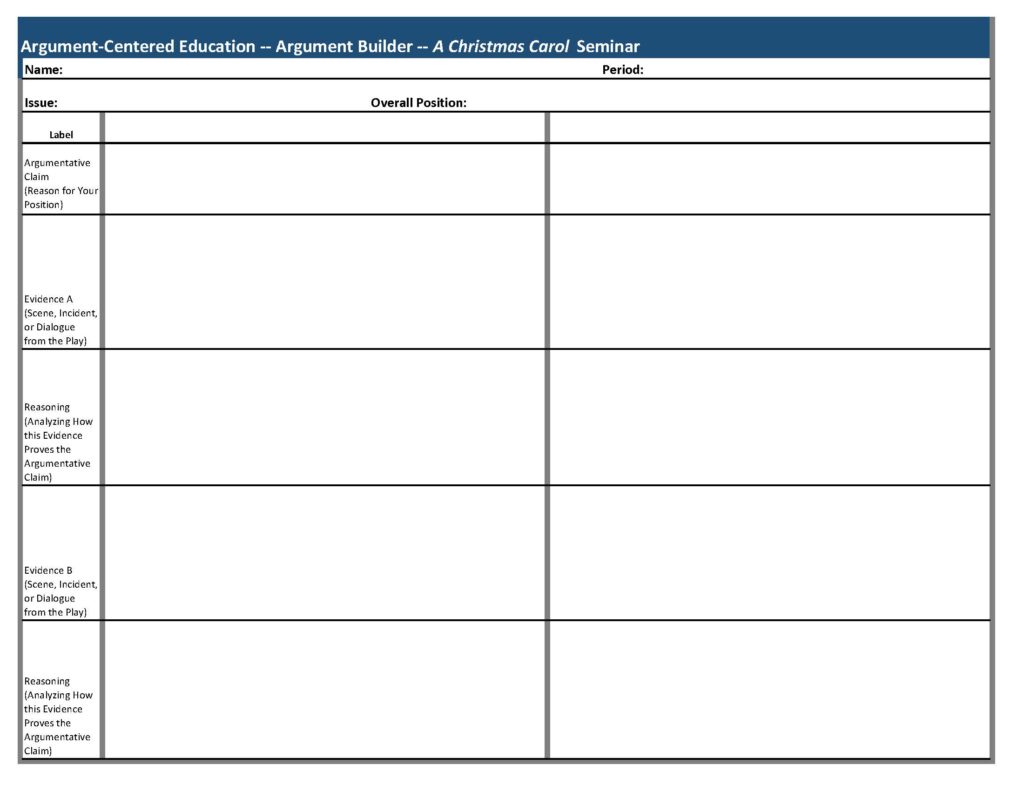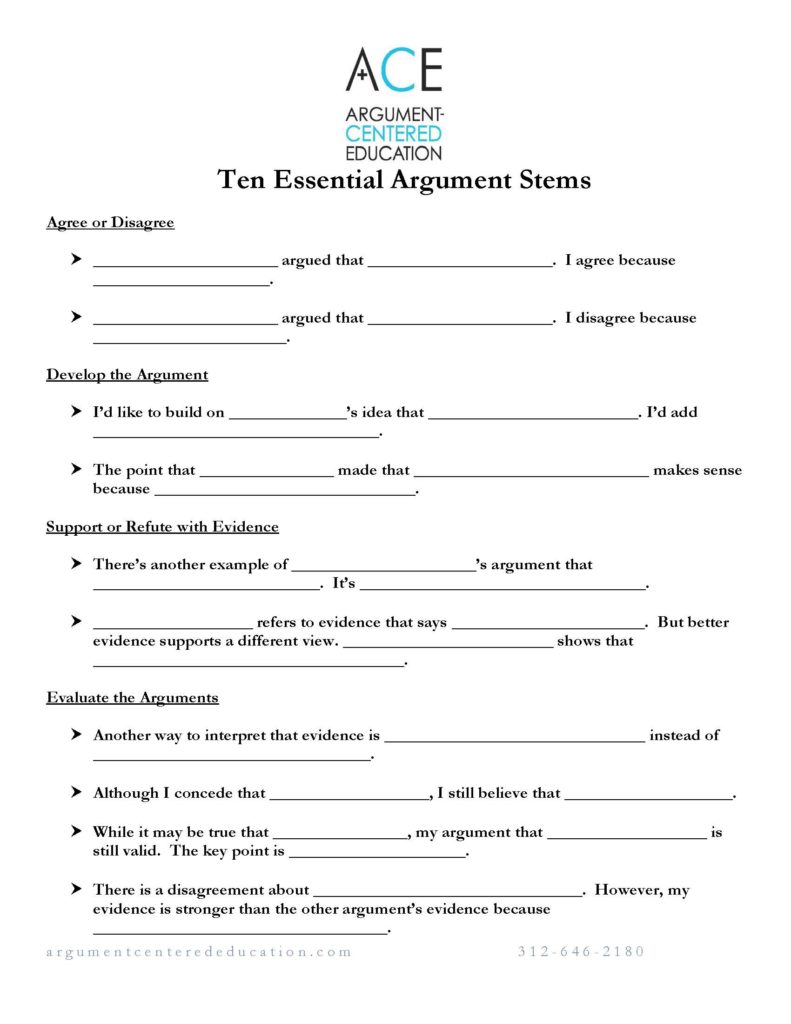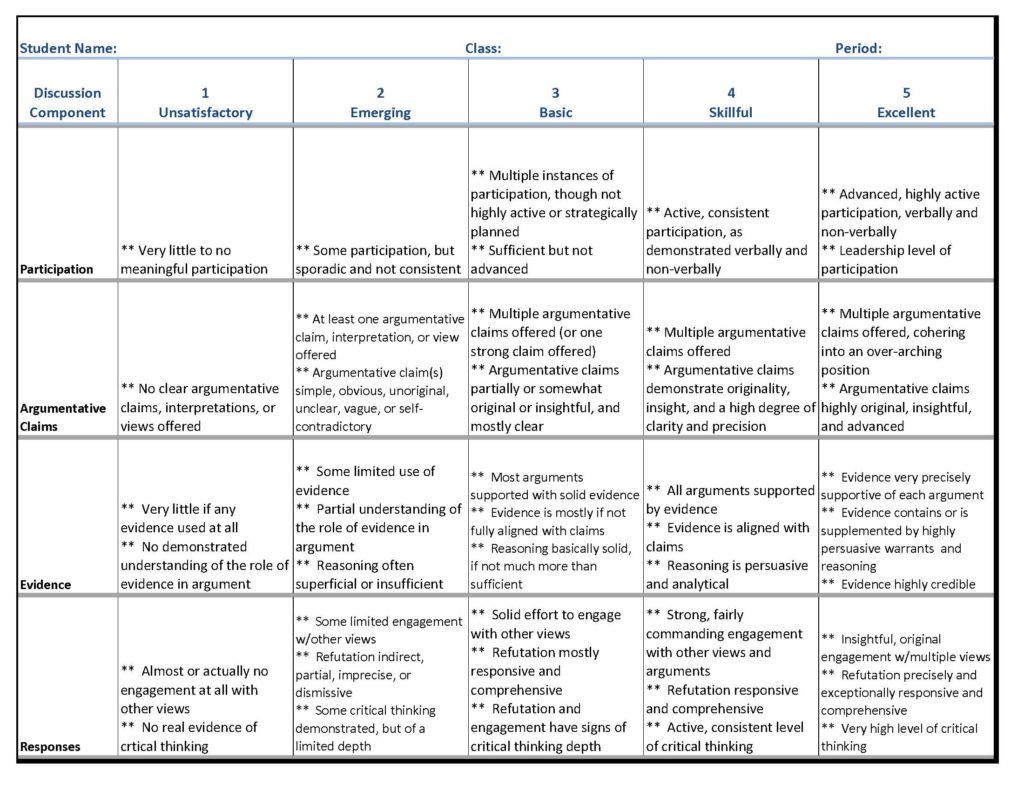
Argumentalizing “Quick & Easy” Curriculum
Not every meal we prepare (or eat) at home is elaborately planned, prepared, and presented. Sometimes we cook “quick & easy” meals, but even these we generally aspire to make nutritious, balanced, and appetizing, too. Similarly with our classrooms: though we strive to be planned, ready, and prepared every day, we are not always implementing finely wrought, meticulously developed curriculum. But we should make these lessons college-directed and academically nourishing, too. What follows is an example of just such a “quick & easy” piece of curriculum, argumentalized.
One of our partner high schools recently took students to see the wonderful production of A Christmas Carol at the Goodman Theater in Chicago. So I suggested an easy-prep argument-based seminar on the day after the trip (with possibly some de-brief and short writing for follow-up the next day).
The debatable issues on this richly literary holiday classic from Dickens:
(1) Does Scrooge’s Christmas day acquisition of a conscience, and his conversion into a more caring, less selfish moral condition, redeem him? Or is Scrooge irredeemable because of the way he has lived his life until then? In other words, does the text encourage you to fully forgive and embrace the new Scrooge?
(2) Does Scrooge become sincerely altruistic after his Christmas day “moral awakening,” or is he only motivated by self-interest in trying to avoid the bleak and damnable void he is introduced to by the Ghost of Christmas Future?
(3) To what extent does A Christmas Carol critique capitalism?
Then on the day after the play, they could canvass students on which position they would likely argue for on the issues at the start of class, and choose the two that have closest to a balance (if none are close to a balance they might assign sides on two of the issues).
The teachers could then distribute argument builders (two per student — or two per pair, if they wants students working in pairs) and have students build 1 – 2 arguments per issue. Because they are not using text here, the argument building should go quickly. The Christmas Carol version of this argument builder is an easily adapted variation of a standard ACE argument builder.

I suggested distributing the argument stems, too, asking students to try to use these to make and (more importantly) respond to arguments during the seminar.

Students can be assessed in a seminar like this individually using the rubric below, which only needs a few circles or check marks done in class, as long as there is one rubric per student copied. The rubric of course should be shown to students in advance (perhaps on Google Classroom).

Then a 25 minute seminar is ready to begin and to be moderated of course by the teacher. All students should be asked to either make arguments or respond to others’ arguments (or counter-arguments). I like a simple rule: the first two times you speak, at least one time you must be responding to someone else’s argument. And no one can speak a third time until everyone has spoken at least once.
Argument-Centered Education has a lot more resources for more developed and fully prepared seminars, but this is argumentalized curriculum that is quick & easy, while also being filling and academically vitamin-packed.

